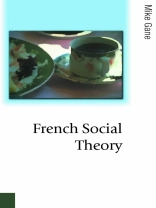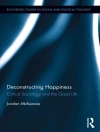No national tradition of social theory has been more seductive to Anglo-American readers than the French.There has been a long-standing fascination with French ideas and debates.
This extraordinarily accomplished book, written by one of Britain′s leading commentators on social theory, provides a peerless account of the French tradition.The book: provides a systematic account of French social theory from the aftermath of the French Revolution (St Simon, Bazard and Comte) to the contemporary scene dominated by Kristeva, Deleuze, Bourdieu and Baudrillard; divides French social theory into three logically coherent cycles: 1800-80 (positivist); 1880-1940 (anthropological); 1940-2000 (Marxist); provides a detailed guide to the three phases of postwar French social theory – existential, structural and post-structural; and situates the discussions of individuals and schools in the relevant social and political contexts.
The book is a masterpiece of erudition and scholarship but is written throughout in an engaging and informative style. It will be required reading for anyone interested in social theory and sociology.
Spis treści
PART ONE: FIRST CYCLE: 1800-1880
THE BIRTH SOCIAL THEORY: ALTRUISM
The Post-revolutionary Void
Sacrificial Theory and the Sociology of Modernity
Theory in Crisis
Religion and the Subjective
End of the First Cycle
Scholasticism
PART TWO: SECOND CYCLE: 1880-1940
THE REBIRTH OF SOCIAL THEORY: ANOMIE
Social Theory Reborn
French Society
Vanguard without a Norm
Method in Crisis and the Resort to Theory in Suicide
End of the Second Cycle
Anthropology and Religion
PART THREE: THIRD CYCLE: 1940-2000
THE SECOND BIRTH OF SOCIAL THEORY: HYPERTELIA
Existential Theory
The Algerian War
From Pathology to Normativity
Structural Theory
Radical Theory and the End of the Social
Fin-de-Cycle
Time of Counter-Strategies
Conclusion
Social Theory at the End of the Social
O autorze
Mike Gane is Professor of Sociology at University of Loughborough












